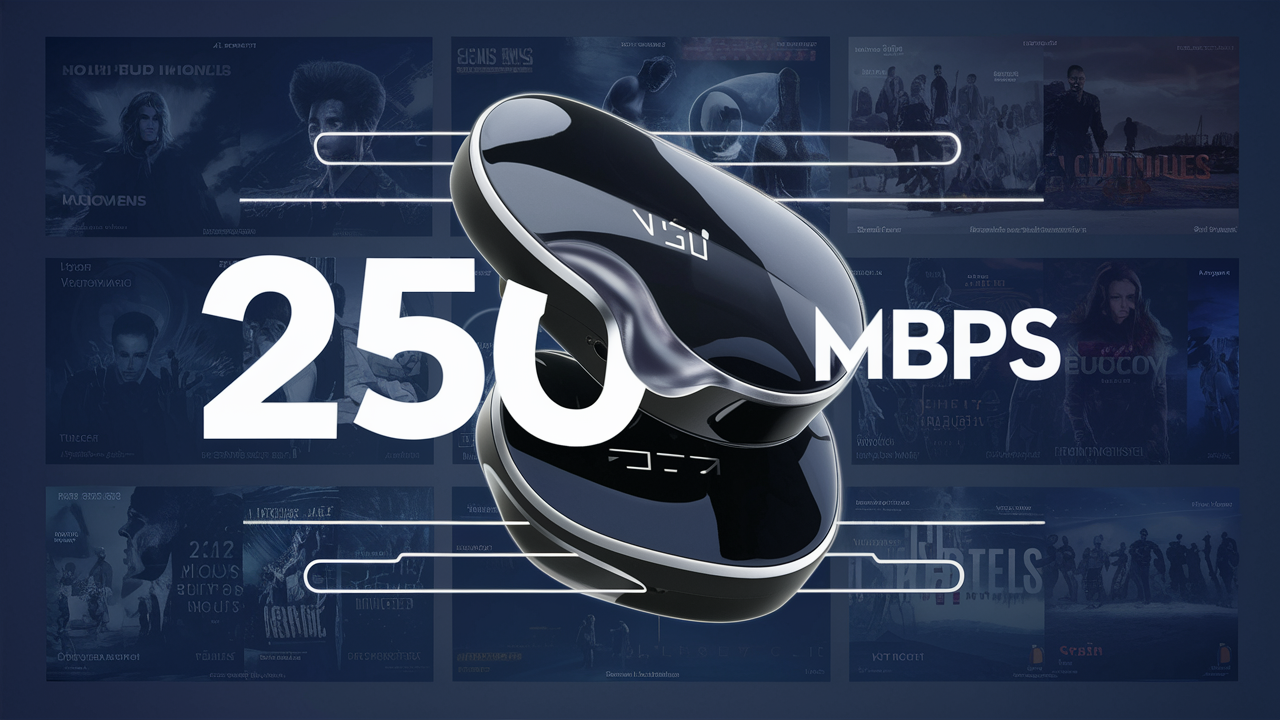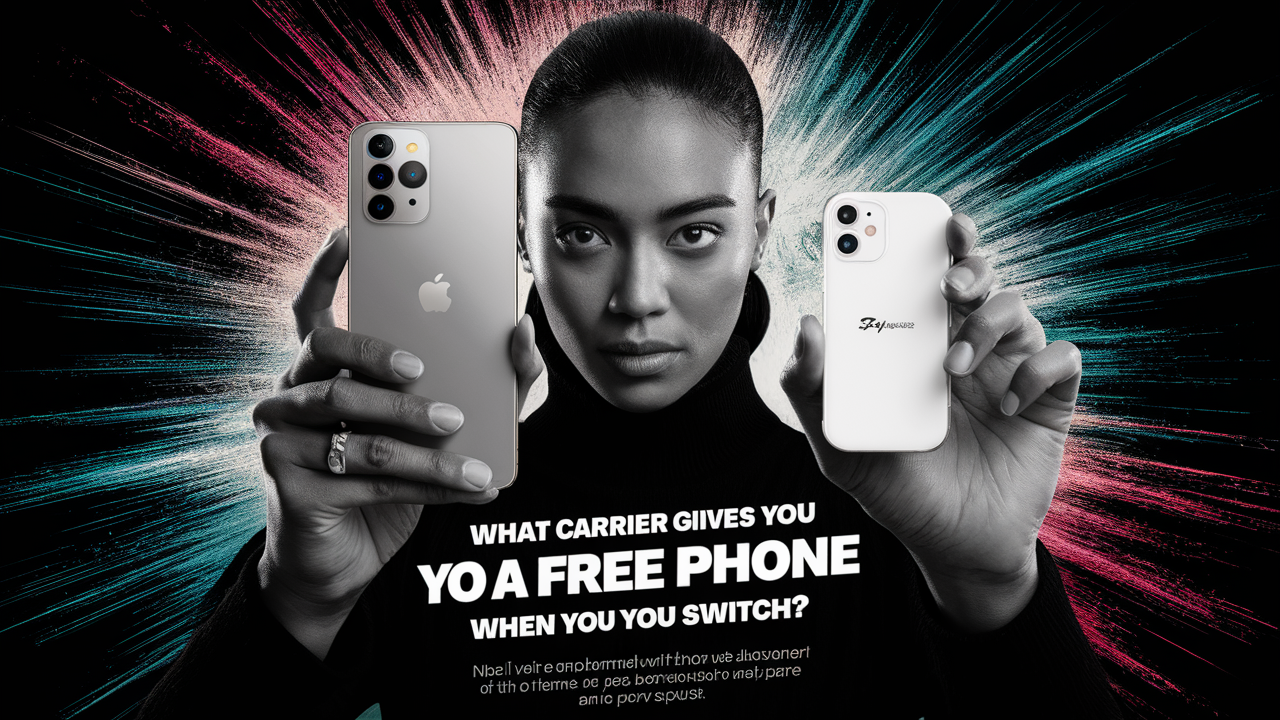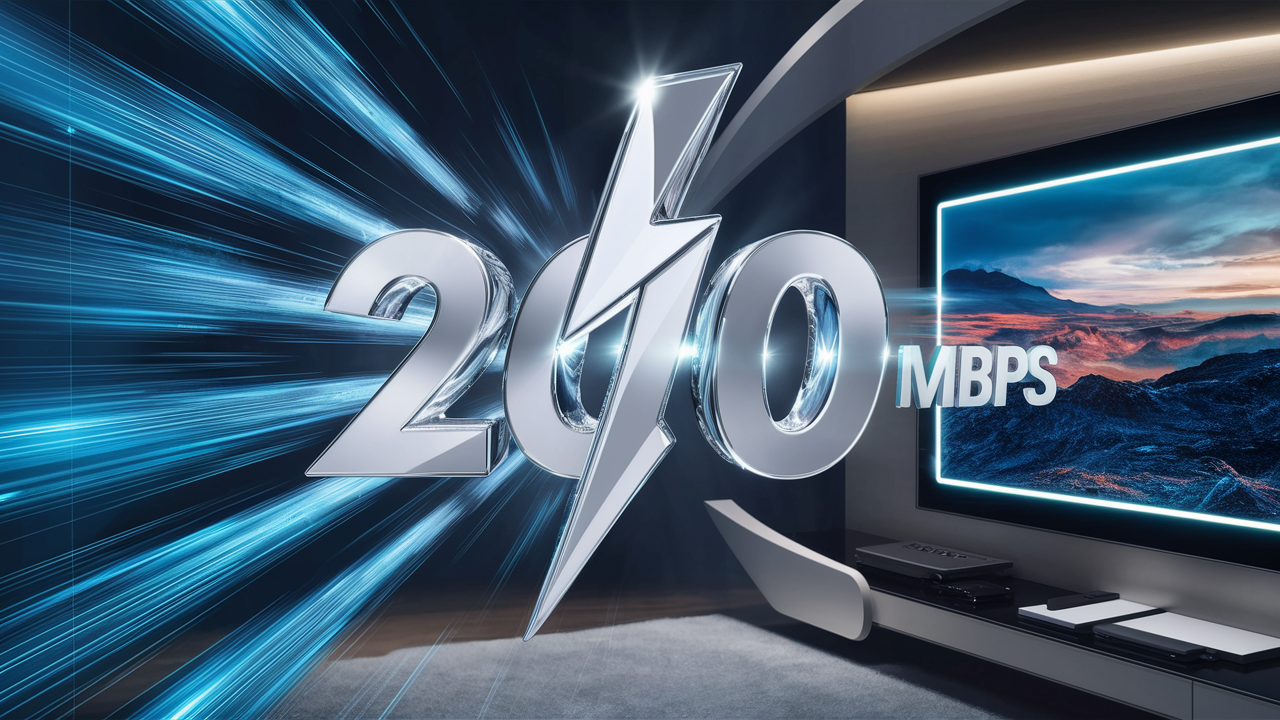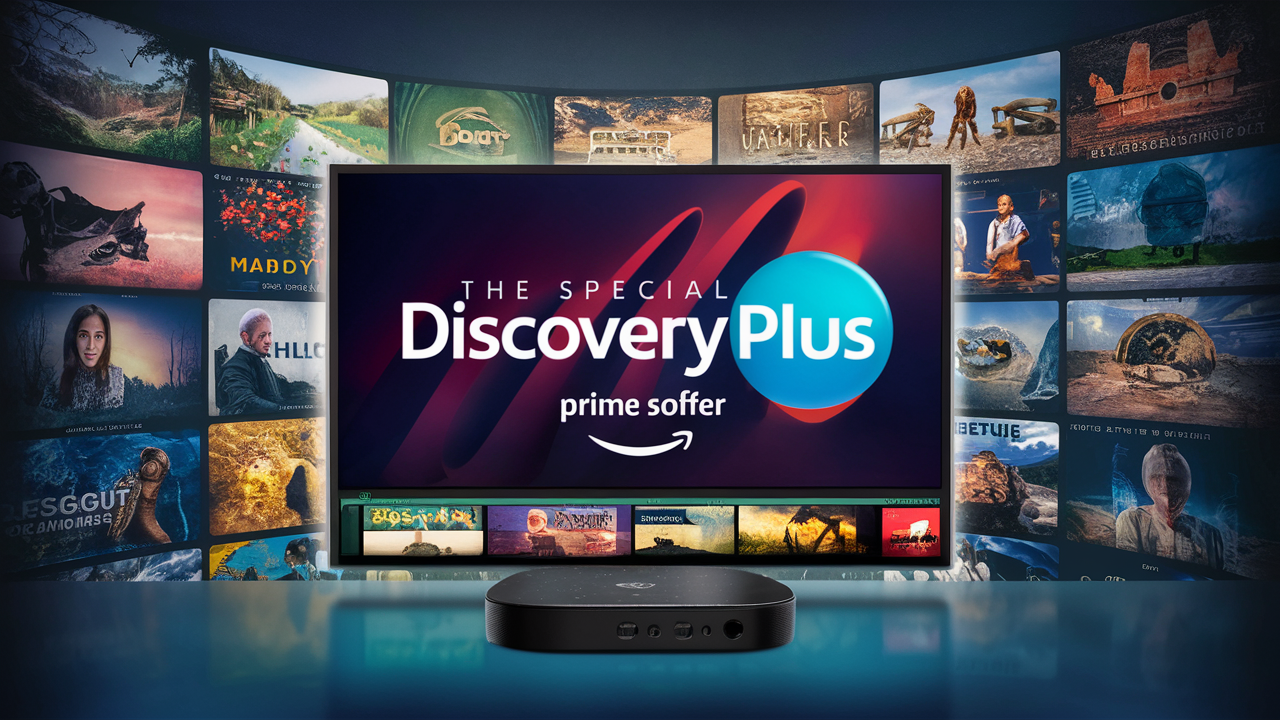Is 250 Mbps Fast Enough for 4K Streaming?

With UHD or the 4K resolution entering the mainstream market as more standard, people ask whether their broadband is sufficient to support 4K content streaming. Usually, internet service providers advise their clients to get a connection with a minimum of 25 Mbps for 4K streaming. However, is it necessary to have 250 Mbps or is it just too much & exorbitant? Let’s examine them a bit closer, shall we?
What is 4K Resolution?
4K stands for 3840 x 2160 pixels, it is a high-definition resolution for a display device. And that means that there are as many as 8.3 million pixels – 4 times as many as the 1080p full HD screen. I like the aspect of ultra-high resolution which delivers clear, high-quality, and realistic images that look almost 3D.
However, all of the additional colors mean that it takes a lot more data to send across the screen. To illustrate, a 1080p video stream may take 5 Mbps, whereas the same video in 4K must be more than 20 Mbps. Therefore, 4K streaming has much more significant bandwidth demands.
Storages That the Platform Requires for 4K Streaming
Contrary to that, most of the specialists advise having at least 25 Mbps internet for streaming 4K content from such services as Netflix, Amazon Prime, Disney+, and others. 25 Mbps enables basic 4K streaming at 30 frames per second, although, there may be occasional breaks in terms of buffering.
To get an optimum 4K experience for streaming, it is advised to have internet speeds ranging between 40-80 Mbps. Consequently, you can watch 4K content online without any interruption, lag, or degradation in quality at a frame rate of 60. The sounds will be perfect with great definition and quality and this makes it perfect for use in playback.
Additionally, for 4K Cox Streming, once the stream speeds go above 80 Mbps the quality of the stream does not improve significantly. The given example of streaming the same 4K video at 80 Mbps or 200 Mbps, for example, shows that the difference in practical use is minimal. That is why, many consider 80 Mbps to be the ideal to get the best of 4K quality streaming experience.
It is, therefore, pertinent to ask; is 250 Mbps adequate or rather over the top for 4K streaming? To some extent, yes, that much speed is excess. However, there are some limitations we’ll discuss in the next sections.
When You Might Need Something Faster than 80 Mbps?
And what is it about families who have several devices connected? 80 Mbps is sufficient to stream a single 4K video, but what if all members of the family start streaming? Okay, but what if you need to be able to stream 4K on several TVs simultaneously? Then 250 Mbps offers some key advantages:
1. Support Multiple 4K Streams
When you have 250 Mbps of bandwidth that lets you run three to five 4K streams concurrently. This allows one family member to play a 4K video on an iPad while another runs another 4K movie on a PC free from first video stopping or loss of quality.
2. Future-Proof for 8K Video
4K is already considered as a new generation today, but there is already a talk about the even higher resolution than this one. 8K video, a resolution four times higher than the 4K ones, needs eight times higher bandwidths; it could be 80 Mbps and above per stream.
Therefore, it means that 250 Mbps provides the possibility to use multiple 4K streams right now and prepare your home network for the appearance of 8K content.
3. Faster Download Speeds
Besides, internet streaming, the high internet speed can help download huge files, 4K/8K videos, games, software, etc., faster. Hence it is clear that the 250 Mbps bandwidth offers significantly higher headroom and flexibility for streaming as well as downloading.
4. Virtually Lag-Free Online Gaming
Avid internet users, especially gaming enthusiasts, are fully aware that improved internet speed translates into better game performance with no lags. This speeds and feeds of 250 Mbps high-speed connectivity you will have an edge over other players with slower connectivity bandwidth.
5. More Smart Devices Connected
Smart home devices such as WiFi security cameras, video doorbells, smart thermostats, smoke detectors, smart appliances, and so on are introduced and integrated continuously. The list goes on. This is because the presence of more devices at home leads to additional bandwidth requirements. Therefore, the additional throughput of 250 Mbps rather than 80 Mbps supports growing connection requirements.
Is It Possible to Get a 250 Mbps Connection for a Reasonable Price?
Of course, 250 Mbps internet brings some valuable advantages – primarily for multiple user houses. However, it is important to bear in mind that these are among the fastest on the market and this comes with an expensive price tag. When choosing the next level of service, which begins with a 250 Mbps rate, ask yourself whether you can take advantage of this rate.
This means that you can run some speed tests when there are many devices active on your home network, streaming, and gaming. If the current internet connection is still responsive with fairly good speed and low latency then it is not wise to upgrade to 250 mbps which you have to pay more for. However, if the demands are straining your connection and reducing speeds, as well as resulting in lag then it might be justified to pay for the next tier.
Watching several 4K videos consecutively, online gaming, download requirements, and smart home environment – indicate that 250 Mbps could enhance your home broadband. For many people, however, 80 Mbps can experience the most superb video quality of 4K streaming. Determine the needs of your family and then make up your mind whether it is necessary to spend more money for the provider with a speed of 250 Mbps.
Ready to upgrade your internet experience? Call us now at +1 844-349-7575 to explore the best Cox Internet plans for your needs!





